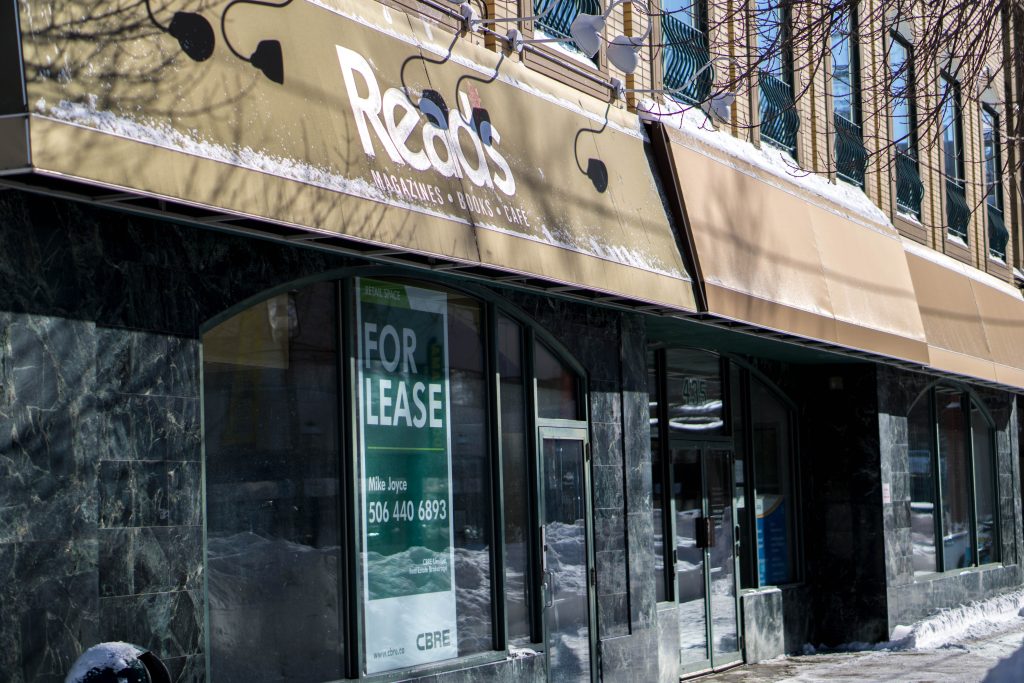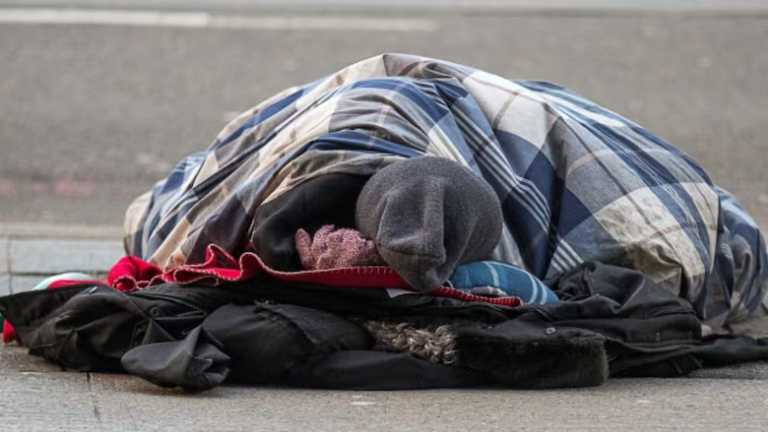Downtown Fredericton has suffered a wave of closures as many favourite businesses and community staples have shut their doors for good. These closed businesses include Owl’s Nest Books, Second Spin Record, Things: The Hippie Boutique, Reads and Tilleul Boutique.
The causes of these closures have been long speculated, leading to a general sense of a crisis in the downtown core.
Bruce McCormack, general manager of Downtown Fredericton Inc., denies any such crisis and says the downtown core is stronger than ever.
“Where some of these businesses have closed, there are new businesses coming in that are good for downtown. To date, those spaces that have closed have pretty much been filled,” McCormack said, and mentioned the expansion of Savage’s Bicycle Center and Radical Edge into the spaces left by Bellboy Dry Cleaners and Owls Nest Books respectively.
McCormack alluded to a number of unannounced developments coming to Fredericton in the next few years, but says they “aren’t his story to tell yet”. He attributes much of this change to the city centre plan put in place by the City of Fredericton in 2015.
“[The plan] aims to reshape how Frederictonians experience the city centre by placing greater emphasis on the quality of the urban environment,” states the official city centre plan outline.
This plan will include expanding the limits of the city centre beyond its current border at Brunswick St. Its primary focus is on infrastructure to improve economic development, culture and tourism.
McCormack says that the plan accounts for large growth in the downtown area over the next decade. This kind of growth often means “refreshing” the existing business community.
When asked about specific closings downtown, McCormack offered little comment, saying that it is not his place to tell the stories of others.
“Some of these businesses are closing just because it is the time for them to close. For others, the story is not quite so simple,” he said.
Backstreet Records has been a part of the downtown community for 30 years and has so far remained safe from the wave of closures. Eric Hill, the store’s manager, calls the mass closures a simple coincidence.
“The way we see it is that it was just kind of a coincidence that they were all so close together,” he said. “Things just kind of rebalance themselves over long periods of time.”
Hill says the closures of some long-time Fredericton staples have drawn attention to the issue and prompted the speculation of some sort of crisis downtown. Instead, he cites Fredericton’s large seasonal population as a reason for the distinct ebb and flow of business.
“Fredericton has a tendency to patronize certain places over a short period of time and then drift away from it,” Hill said. “Partly it’s just the population of Fredericton, you have a lot of people who work for the universities, and work for the government, that maybe don’t live here year round and so traffic flow changes routinely.”
Hill said the recent construction of Regent St. and Queen St. is also referred to as a reason behind the closures, but he affirms that the downtown has stabilized since then.
Jackie Veinott, owner of Things: The Hippie Boutique (a business of 26 years that closed its doors last month), is not so positive.
“The construction cost me my business,” she said. “It started with the construction of the parking garage on King St. And then they spent three years on the hotel. It was a basic crumple and decline of the downtown core.”
Veinott says the city’s construction and poor maintenance of the streets and sidewalks deter potential customers from venturing downtown. She says that this, combined with the rising popularity of online shopping, has a detrimental effect on small businesses.
“The ones that supported me, supported me like crazy. But you can only have so many loyal customers,” she said. “Frederictonians don’t like to support Fredericton.”
Veinott believes that the City of Fredericton can do much more to facilitate business downtown. She states that although growth is important, infrastructure should not take precedence over the livelihoods of business owners.
“The merchants can only do so much, and the city hasn’t done a good job. You’re playing with people’s lives,” Veinott said.
She says that a city’s downtown area is crucial to its sense of community. These closings thus have the potential to cause a negative impact on the downtown community.
“It is sad to see long-time businesses leaving the downtown core. It becomes your community. It’s like a town within the city. If you don’t have a strong downtown core you’re not going to have that sense of community like a city needs,” Veinott said.




